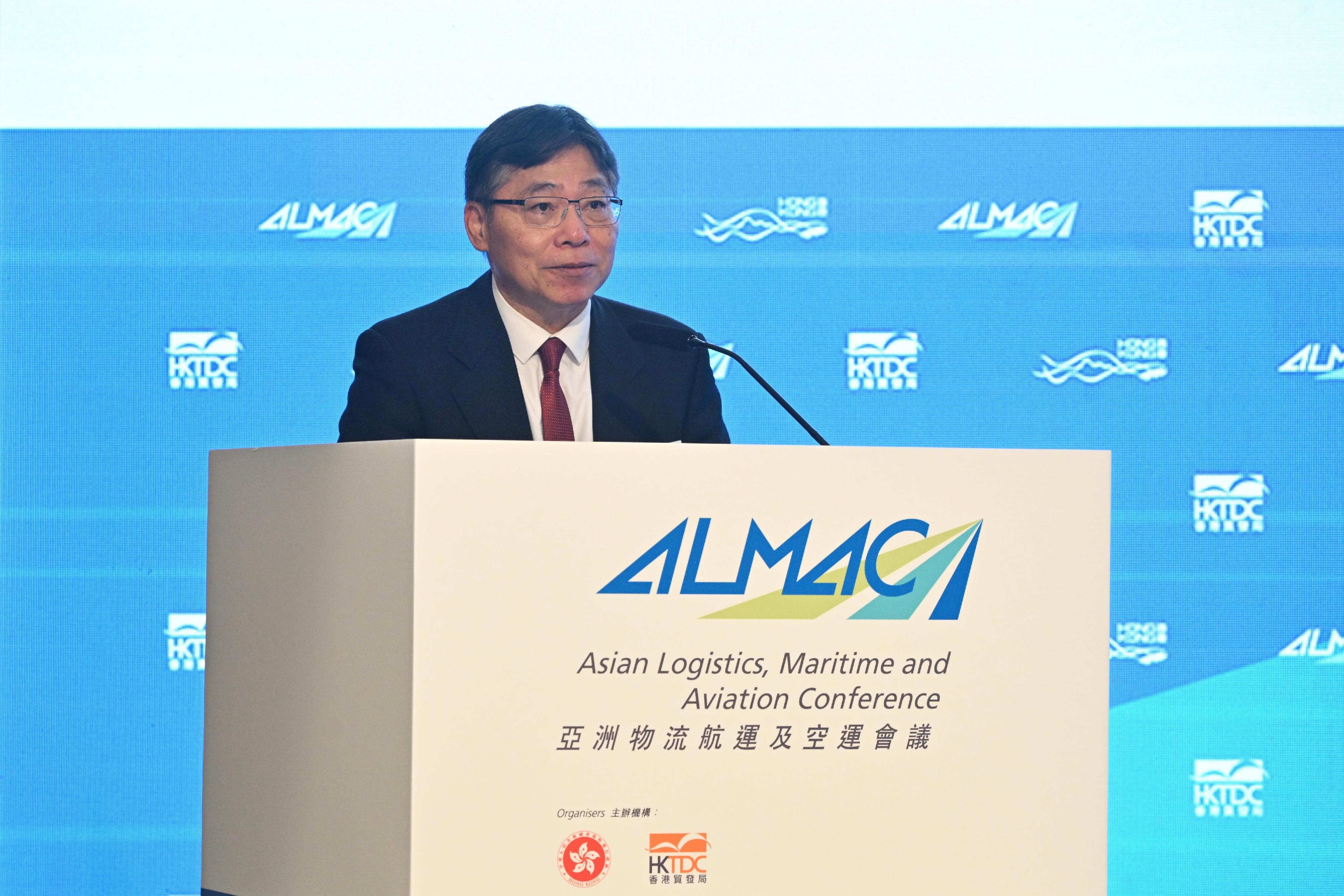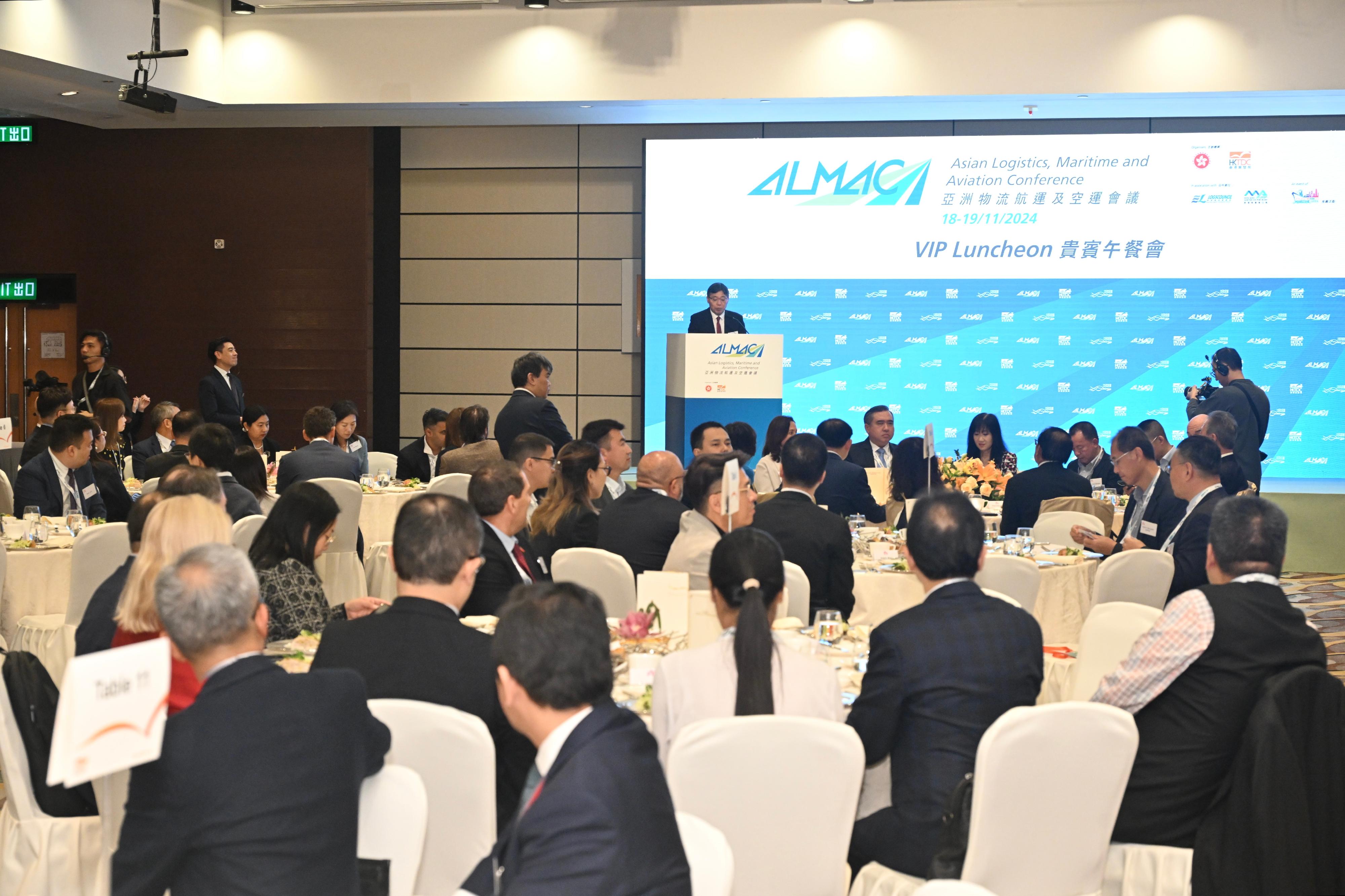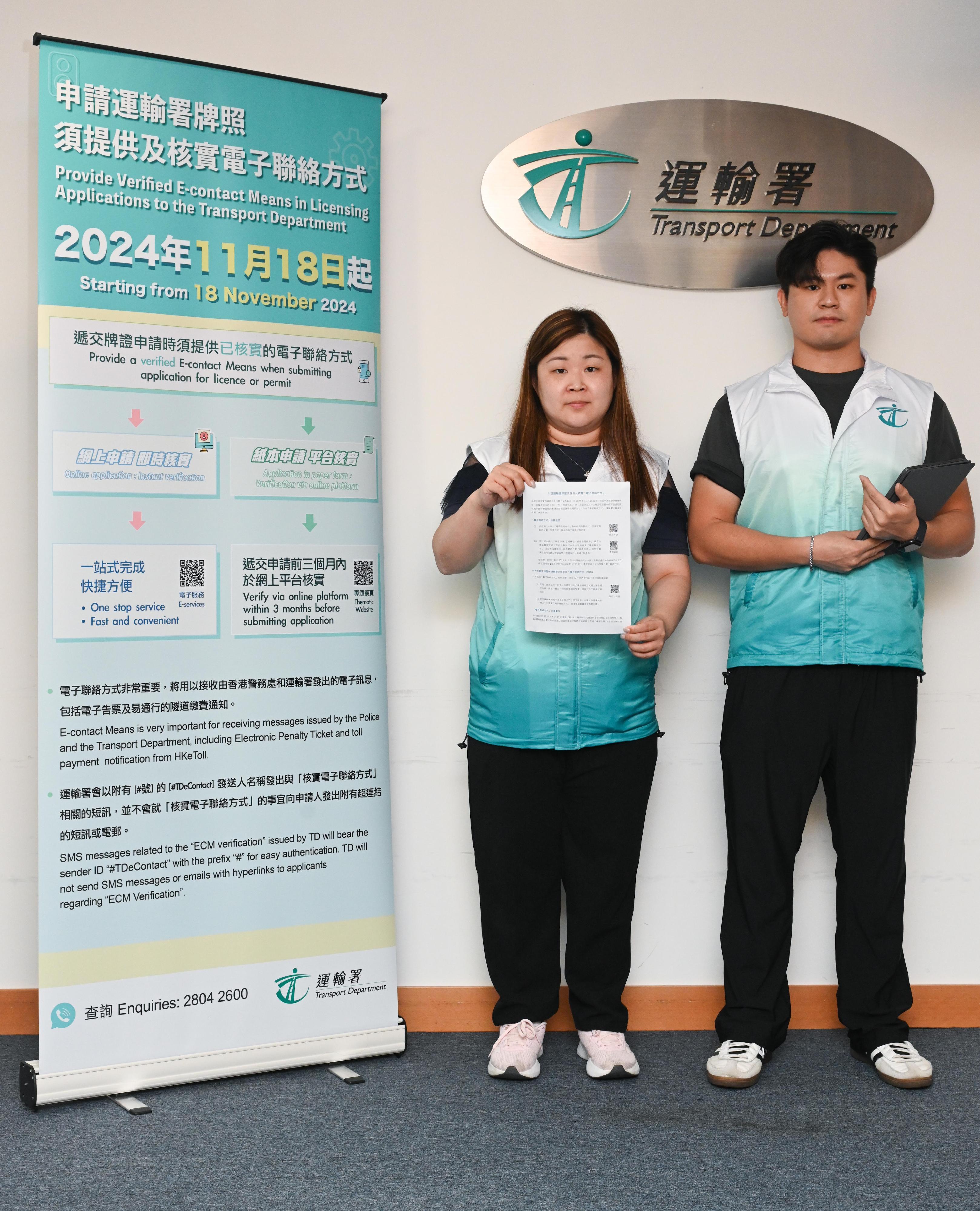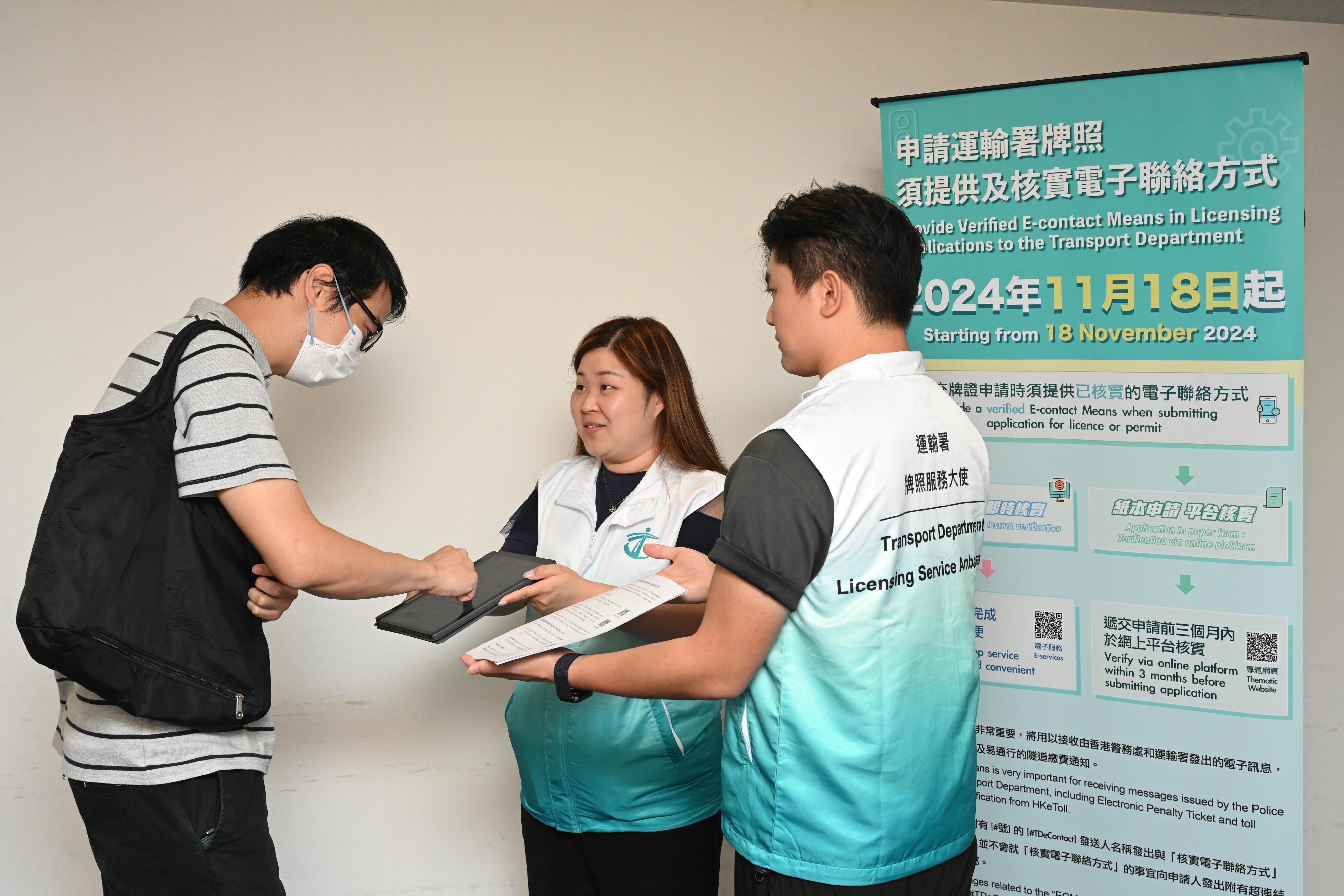Welcome remarks by STL at Asian Logistics, Maritime and Aviation Conference 2024 VIP Luncheon (English only) (with photos)
Following are the welcome remarks by the Secretary for Transport and Logistics, Mr Lam Sai-hung, at the Asian Logistics, Maritime and Aviation Conference (ALMAC) 2024 VIP Luncheon today (November 18):
Margaret (Executive Director of the Hong Kong Trade Development Council, Ms Margaret Fong), Minister Loke (Minister of Transport of Malaysia, Mr Anthony Loke), First Deputy Prime Minister Davitashvili (First Deputy Prime Minister and Minister of Economy and Sustainable Development of Georgia, Mr Levan Davitashvili), Secretary of State His Excellency Heng Nan (Secretary of State of the Ministry of Public Works and Transport of Cambodia, Mr Heng Nan), Vice Minister His Excellency Manodham (Vice Minister of Public Works and Transport of Lao PDR, Mr Saysongkham Manodham), Deputy Minister Nguyen (Deputy Minister of Transport of Vietnam, Mr Nguyen Xuan Sang), distinguished guests, ladies and gentlemen,
Good afternoon. Welcome to the VIP luncheon of the Asian Logistics, Maritime and Aviation Conference, or ALMAC in short. As ALMAC has entered into its 14th edition, it is my great pleasure to meet both new guests and familiar faces at this luncheon.
The theme of this year's ALMAC, "Shaping the Future of Supply Chains: Resilience and Sustainability", is no doubt very close to our hearts. It is especially true for "sustainability", as extreme weather events ravaging our world in ever greater frequency and ferocity remind us of our duties as global citizens to protect our Mother Earth. On that front, I am glad to say that the three industries that ALMAC covers, namely maritime, aviation and logistics industries, are rightly taking important steps to contribute to a green and sustainable future, and the Chief Executive of the HKSAR has in his 2024 Policy Address announced major policy initiatives steering the trade precisely in those directions in line with international trend.
Over 90 per cent of Hong Kong's cargo is transported by sea, so decarbonisation of our maritime industry is a crucial part of our sustainability strategy. Following the global trend of switching from traditional fossil maritime fuels to green ones, we promulgated last week an Action Plan on Green Maritime Fuel Bunkering, setting out a concrete blueprint for Hong Kong's development into a high-quality green maritime fuel bunkering centre, including the development of necessary infrastructure, commitment to securing stable green maritime fuel supply, facilitating collaboration among stakeholders along the whole bunkering supply chain, greening up our government fleet to lead by example and actively forging partnership with other ports in a truly global effort to reduce carbon emissions of the maritime sector and meet the international decarbonisation target. We also incentivise green transformation of the vast fleet on our Hong Kong Registry by being the first jurisdiction in the world to have introduced a Carbon Intensity Indicator (CII)-based incentive scheme, with financial award available to those ships attaining the highest CII ratings.
Hong Kong is home to one of the world's busiest airports, and it only makes sense that we should lead in achieving sustainability in aviation as well. With the increasing adoption of sustainable aviation fuel (SAF) by international airlines, Hong Kong is closely following international trend and making SAF usage our priority. We will speed up the reduction of carbon emissions by the aviation industry by mapping out the way forward for SAF. For this, the Airport Authority Hong Kong has recently completed a consultancy study on SAF, and the Government is making reference to the results in determining the next step, with a view to setting and announcing in 2025 a usage target for SAF for flights departing Hong Kong International Airport, thereby flying us into a greener aviation future.
Meanwhile, on logistics, green and sustainability is one of the five key directions we identified for the development of modern logistics in Hong Kong, as outlined in the Action Plan on Modern Logistics Development we rolled out last year. We understand that going green often involves investment in technologies and know-how, which is why we have launched financial schemes to sponsor the logistics trade for adopting smart technologies and taking training courses that are conducive to environmental, social and governance (ESG) enhancement of their operations. But with ESG being an evolving field, the logistics trade needs guidance on what steps to take and what achievable goal there is for them to become ESG-compliant. Therefore, the Government is now conducting a comprehensive study on the current status in Hong Kong's logistics sector, as well as an overview of the latest global trends in ESG development, with a view to formulating a practical roadmap for the logistics trade, so that they know what to do each step along the way to embrace ESG and ultimately enhance their competitiveness in an increasingly green-conscious world.
Ladies and gentlemen, sustainability is an irreversible trend for the maritime, aviation and logistics industries. It is only with sustainable practices in a world with finite resources that our trade can be resilient. Therefore, the discussion at ALMAC today is very timely and pertinent, and I hope that you will all have valuable takeaways from this event.
For those of you from outside Hong Kong, I also hope that you will come to appreciate the efforts that Hong Kong is making to establish itself as a staunch green player in the maritime, aviation and logistics fields, and through your interaction with the esteemed local industry leaders among us today, you will find Hong Kong a trusted partner with green credentials and, as we often pride ourselves on, a "super-connector" bridging the East and West. We are here to help you to unleash the potential of new markets and unlock golden opportunities for further development.
Thank you once again for your support to ALMAC. I wish you a very fruitful event.



